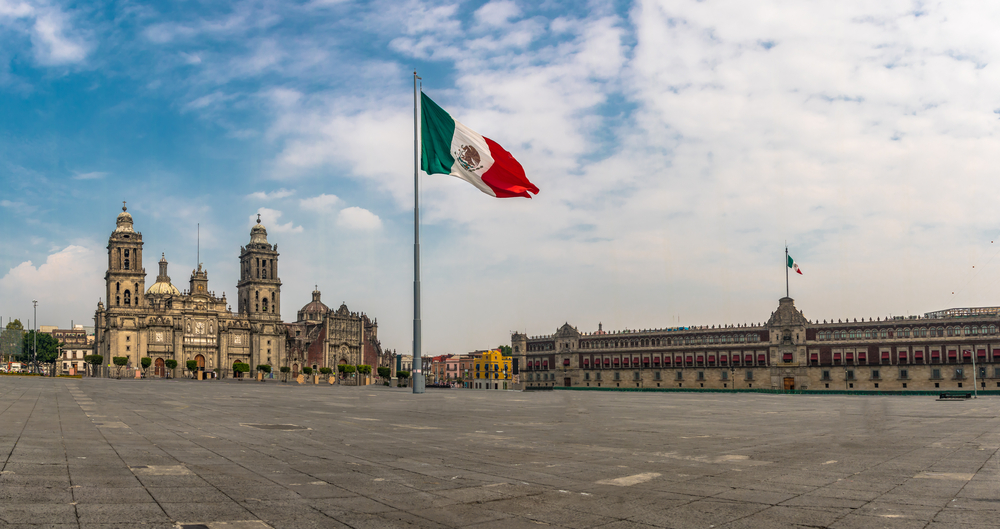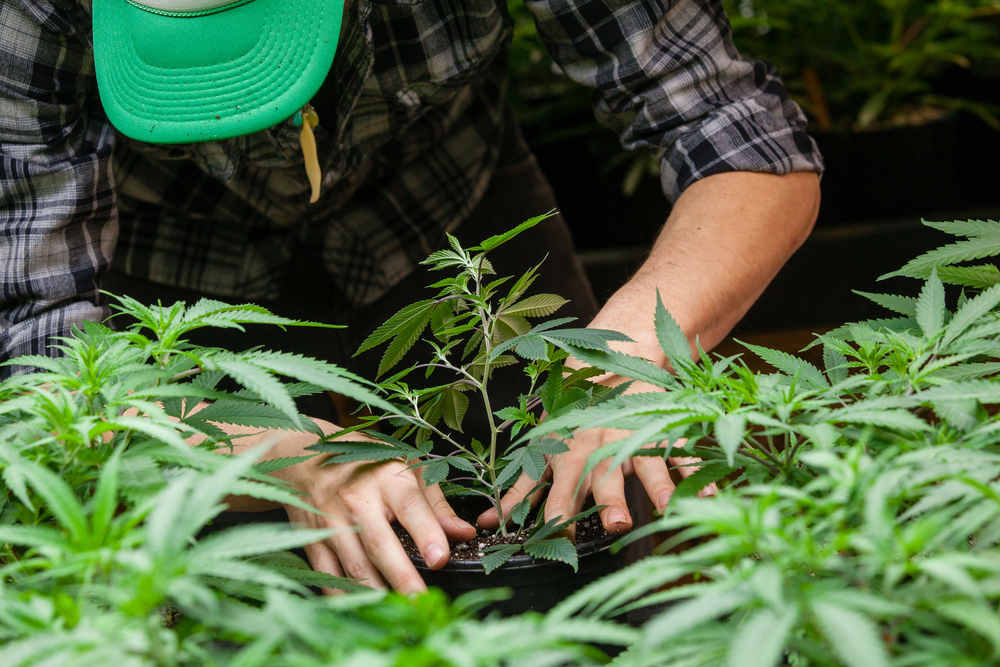Lawmakers in Mexico City approved the Mexico Cannabis Bill on Wednesday, March 10, 2021, marking a significant occasion for the country by officially legalizing the use of recreational marijuana.
According to a report published by the New York Times, the country is currently “in the throes of a drug war,” and this new legislation could solidify Mexico’s position as the “world’s largest cannabis market.”
This ruling also now places the United States between two significant marijuana producers and sellers, Canada and Mexico.
The recent vote in Mexico’s Chamber of Deputies comes two years after the country’s Supreme Court ruled that its ban on recreational cannabis was “unconstitutional” and more than three years after Mexico legalized medicinal marijuana.
“The Chamber of Deputies approves, in general, with 316 votes in favour, 129 against and 23 abstentions, to issue the Federal Law for the Regulation of #Cannabis,” the Chamber of Deputies stated in a tweet on Wednesday.
The tweet continues that the Mexican government also plans to reform the General Health Law and the Federal Criminal Code to adhere to the new legislation.
According to the New York Times, the bill, in its final form, is anticipated to “sail through the Senate” before finalization by the country’s head of state, President Andrés Manuel López Obrador, who has already declared his support for Mexico weed legalization.
While this decision follows in the footsteps of many other countries around the world advocating for legalization, the ruling has arguably different connotations and complications for the country itself.
So, what are the details surrounding this new Mexico Cannabis Bill, how will it impact trade, and what is the government doing to ensure that manufacturing and cannabis sales are regulated?
Today, we will be taking a closer look at the Mexico Cannabis Bill and what it means for the country and its relations with other cannabis-producing countries moving forward.
Mexico’s Relationship with Cannabis & The United States

When discussing the debate surrounding marijuana’s legality in Mexico and the United States, the topic itself encompasses much more than simply whether or not governments should legalize the recreational and medicinal use of the plant.
The issue has and will continue to relate to immigration concerns, but not how one might initially think.
It’s a common misconception that Mexico has had a lenient, more tolerant view of cannabis than other countries, namely the United States. However, that is not entirely true. In fact, the substance was similarly villainized in Mexico as it was in the US, like “Reefer Madness.”
Hemp was brought to Mexico by the Spanish in the 16th century to use as an industrial fibre. During the colonial era, the substance generated from this plant, marijuana, eventually took on the same negative connotation as other drugs.
It wasn’t until the 19th century that cannabis gained a reputation as a recreational substance. Even then, it was mostly concentrated in the more disparaged environments, such as prisons. In this way, marijuana quickly became associated with violence and danger.
Back in the United States, there were few regulations surrounding cannabis before the 1930s where pharmaceutical firms mostly used it. Historian Isaac Campos, author of Home Grown: Marijuana and the Origins of Mexico’s War on Drugs, told TIME that he even found evidence of Mexicans crossing the border into the US, purchasing weed from American pharmacies, and bringing it back into Mexico.
“So the smuggling was going in the other direction at that time because many states in Mexico had already prohibited it,” Campos explains. The Mexican government banned marijuana in 1920.
Thus, cannabis had a negative reputation in Mexico long before it did in the US. However, once American citizens jumped on this concept, they also picked up the perspective that concerned not only the substance itself but who was consuming it.
This vast generalization of Mexican immigrants being frequent cannabis users spurred a passionate onslaught of anti-immigrant sentiment that still exists to this day in one way or another.
Thus, the recent widespread Mexico weed legalization will likely significantly impact its overall trade relationships and the already-existing cartels dispersed throughout the country. These organizations have already infiltrated multiple other cash crops exported from Mexico, including one of its most booming, avocados.
From One Cash Crop to Another

80% of the avocados consumed in the US come from Mexico. The state of Michoacán, specifically, exports 90% of the country’s avocados. This region has run rampant with organized crime for quite some time. However, this conflict no longer only encompasses the typical drug and turf wars.
Initially, organized crime in Mexico consisted primarily of manufacturing and shipping various drugs across the border into the United States, creating “by far the largest illicit drug market worldwide,” according to a report by Insider.
By 2006, there were six major criminal organizations in Mexico. However, there are now dozens of smaller entities that have proven harder to uncover and control and “far more aggressive,” Insider describes.
“In a situation where no one is truly in control anymore – neither the state nor a single dominant criminal group – and there is no-one to impose rules, the default means for these groups to sort out their affairs with each other is violence,” the report explains.
However, while drugs still play a critical role in these crime dealings, the business model has shifted towards reaping the profits of other locally available profitable commodities, which is where the avocados come in.
Whether you want to blame Millennials for their increased consumption of avocado toast or take the more logical stance that its classification as a “superfood” has increased global demand, exports of this fruit are at an all-time high.
This progression, in turn, has resulted in multiple cartels and groups fighting to dominate this “billion-dollar-a-year industry.”
This long-handed example is to establish that, while there are opposers of the new Mexico Cannabis Bill, it isn’t necessarily cannabis itself that is the cause of the deeply-rooted issues surrounding crime and deviance in either Mexico or the United States.
Breaking Down the Mexico Cannabis Bill
According to the Chamber of Deputies, the new Mexico weed legalization legislation will allow adults (aged 18 or older) to smoke cannabis for recreational and medicinal purposes as well as grow a small number of plants (6) in their own homes.
It also permits individual users to carry up to 28 grams of marijuana and allows producers licenses, including small farmers and commercial flowers, to cultivate and sell weed.
However, medical marijuana will be regulated separately by the health ministry, which enacted separate rules in January surrounding the cultivation and research of medical marijuana.
If enacted, Mexico would join Canada and Uruguay in the growing list of countries within the Americas to legalize marijuana, prompting a larger push in advocacy for legalization throughout the region.
For example, Democrats in the United States Senate have promised to eliminate the federal prohibition of marijuana in 2021.
According to John Walsh, the director of drug policy for the Washington Office of Latin America, a U.S. Advocacy group, Mexico’s advancement towards legalization is substantial.
“Given its size and its worldwide reputation for being damaged by the drug war, to take this step is enormously significant,” Walsh explains in the New York Times article. “North America is heading toward legalization.”
However, not everyone is as pleased with the decision.
A Divided Nation

According to the New York Times, many critics of the Mexico Cannabis Bill fear that Mexico weed legalization will only further facilitate the “soaring rates of cartel-fueled violence.”
This opposition claims that it’s “unwelcome in a country where nearly two-thirds of people oppose legalizing marijuana, according to recent polling.”
Damián Zepeda Vidales, a senator with the National Action Party, claims Mexico weed legalization to be a “political fad” that serves to commission “an elite that’s now empowered in Congress and in government that wants to impose a way of life on society.”
That said, Mexican Security experts collectively agree that the law’s actual impact on violence within the country will be minimal.
“We shouldn’t overestimate the power of this bill,” senior Mexico analyst for the International Crisis Group, Falko Ernst, states in the report. He goes on to explain that the Mexico Cannabis Bill will not “substantially change the dynamics and drivers of lethal conflict in Mexico.”
What Does it Mean for Farmers?
Another concern is how much this new legislation will genuinely benefit Mexico’s impoverished farmers who have been growing marijuana for decades.
The Mexico Cannabis Bill outlines that priority in licensing should be given to small farmers and indigenous people. That said, most of these vulnerable populations occupy land that is frequently the grounds of conflict between opposing cartels and trafficking groups.
Ernst continues that, without additional policies meant to curb organized crime, especially in prime cannabis-growing areas, these “well-intentioned requirements” may not significantly impact farmers occupying these cartel-controlled regions.
Entrepreneurs are “Seeing Green”

While the country’s less fortunate populations are potentially at a loss, Mexico’s entrepreneurs are “seeing green,” the New York Times report states.
With over 120 million people, Mexico would represent the “largest marijuana market in the world by population.” According to the report, weed would quickly become an enormous business in Mexico and a “potential financial lift” for its economy that has suffered significantly from the current COVID-19 global pandemic.
However, this eagerness makes some pro-legalization activists nervous.
“It’s a law for the rich, and marijuana should be for everybody,” local 18-year-old activist Ivania Medina Rodríguez explains. “They’re going for business before rights.”
Some activists are worried that the Mexico Cannabis Bill will favour larger corporations instead of small-scale producers and vendors, causing the latter to be “locked out of the lucrative market.”
Mexico & Marijuana – Legitimizing Legalization
While Mexico weed legalization is arguably a step in the right direction, as we have clearly outlined throughout this article, the issue itself is far from black and white.
This new legislation will undoubtedly have significant impacts from the bottom up, from local farmers to the general populations up to the organized cartels and wealthier entrepreneurs. The country will likely experience both positive and negative consequences as a result of legalizing recreational weed.
However, one of the most pertinent factors that will influence its success or failure will come down to the government’s ability to safely and effectively regulate the likely soon-to-be booming marijuana industry.
At this point, only time will tell.




 No products in the cart.
No products in the cart.